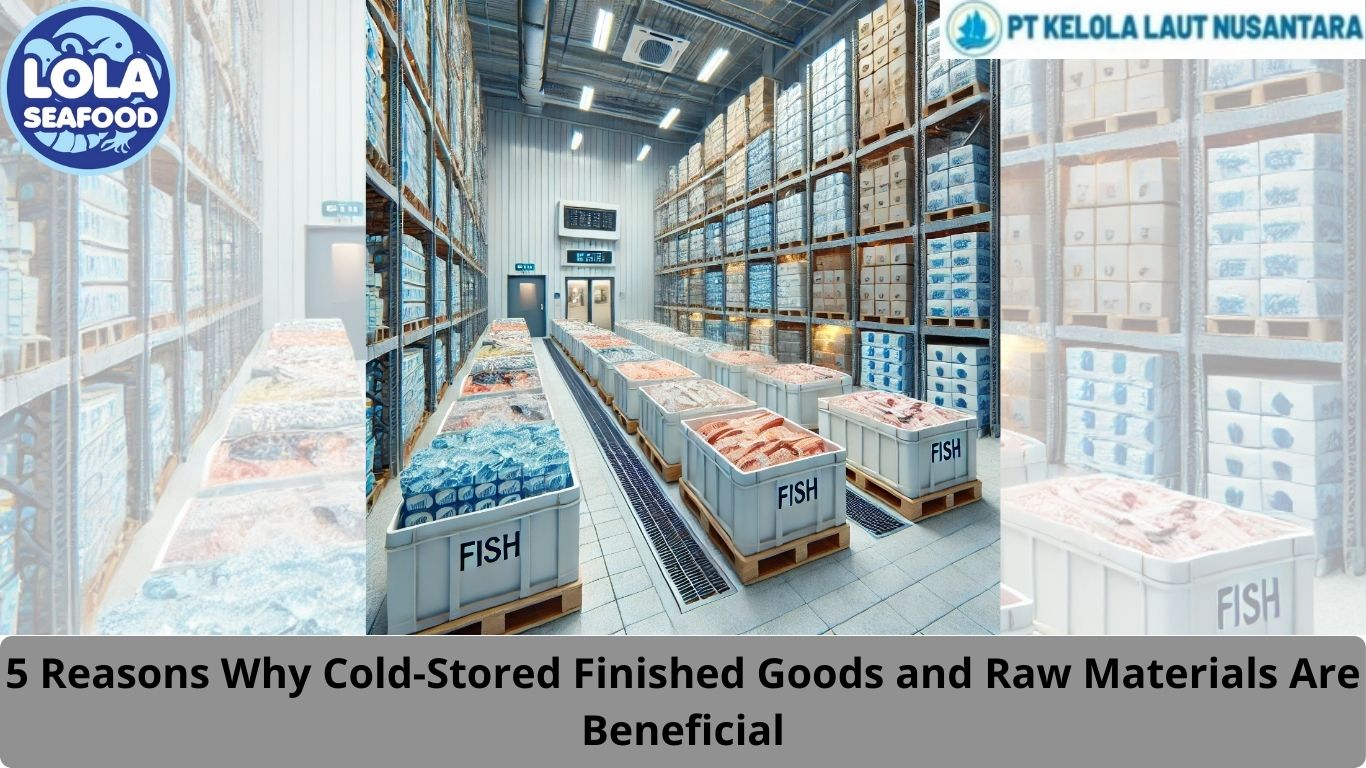5 Reasons Why Cold-Stored Finished Goods and Raw Materials Are Beneficial
By. Lutfi - 20 Feb 2025
Kelolalaut.com In many industries, from food production to pharmaceuticals and manufacturing, cold storage plays a crucial role in preserving the quality and safety of both raw materials and finished goods. Maintaining an optimal temperature ensures that products retain their integrity, extend their shelf life, and comply with regulatory standards. Here are five key benefits of cold-storing finished goods and raw materials.
1. Extended Shelf Life and Product Freshness
One of the primary advantages of cold storage is the ability to extend the shelf life of perishable goods. Many raw materials, such as dairy, meat, and fresh produce, degrade quickly at room temperature. Similarly, finished products like frozen meals, pharmaceutical drugs, and chemical-based goods remain stable for longer when stored in a controlled, cold environment. By reducing the rate of bacterial growth and chemical reactions, cold storage helps businesses minimize spoilage and waste while maintaining product quality for consumers.
2. Maintains Product Quality and Integrity
Certain materials and products require specific temperature conditions to preserve their structure, texture, and potency. For example, cosmetics and pharmaceutical products may lose effectiveness if exposed to excessive heat. In the food industry, cold storage prevents dehydration, oxidation, and microbial contamination, ensuring that products reach customers in peak condition. Whether it’s fresh produce staying crisp or medicines retaining their therapeutic properties, temperature-controlled storage is essential for product integrity.
3. Compliance with Safety and Regulatory Standards
Many industries are subject to strict regulations regarding the storage and handling of raw materials and finished goods. Government agencies such as the Food and Drug Administration (FDA), the World Health Organization (WHO), and the Environmental Protection Agency (EPA) enforce guidelines to ensure consumer safety. Cold storage helps businesses comply with these regulations by maintaining the required conditions for safe product storage. Failure to adhere to these standards can lead to legal repercussions, financial losses, and reputational damage.
4. Reduces Waste and Financial Losses
Businesses that rely on perishable raw materials often face financial losses due to spoilage and waste. Cold storage significantly reduces this risk by slowing down the degradation process. In industries such as agriculture, logistics, and food retail, the ability to store large quantities of products without immediate spoilage leads to more efficient inventory management. By preserving raw materials and finished goods for longer periods, businesses can reduce waste, lower costs, and optimize supply chain operations.
5. Enhances Supply Chain Efficiency and Market Reach
Cold storage enables businesses to transport and distribute goods over longer distances without compromising quality. This is especially important for global supply chains where products may need to travel for days or weeks before reaching their final destination. With advancements in refrigerated transportation, businesses can expand their market reach and serve customers in different regions without the risk of spoilage. Additionally, reliable cold storage facilities help maintain inventory levels and ensure product availability year-round, improving overall supply chain efficiency.
Cold storage is a crucial investment for businesses that handle perishable raw materials and finished goods. By extending shelf life, preserving product quality, ensuring regulatory compliance, reducing waste, and enhancing supply chain operations, cold storage offers numerous benefits that translate into financial savings and customer satisfaction. As industries continue to evolve, the demand for efficient cold storage solutions will remain essential in maintaining product integrity and market competitiveness.
If youre interested in our Halibut Fillet Skinless please do not hesitate to contact us through email and/or whatsapp








